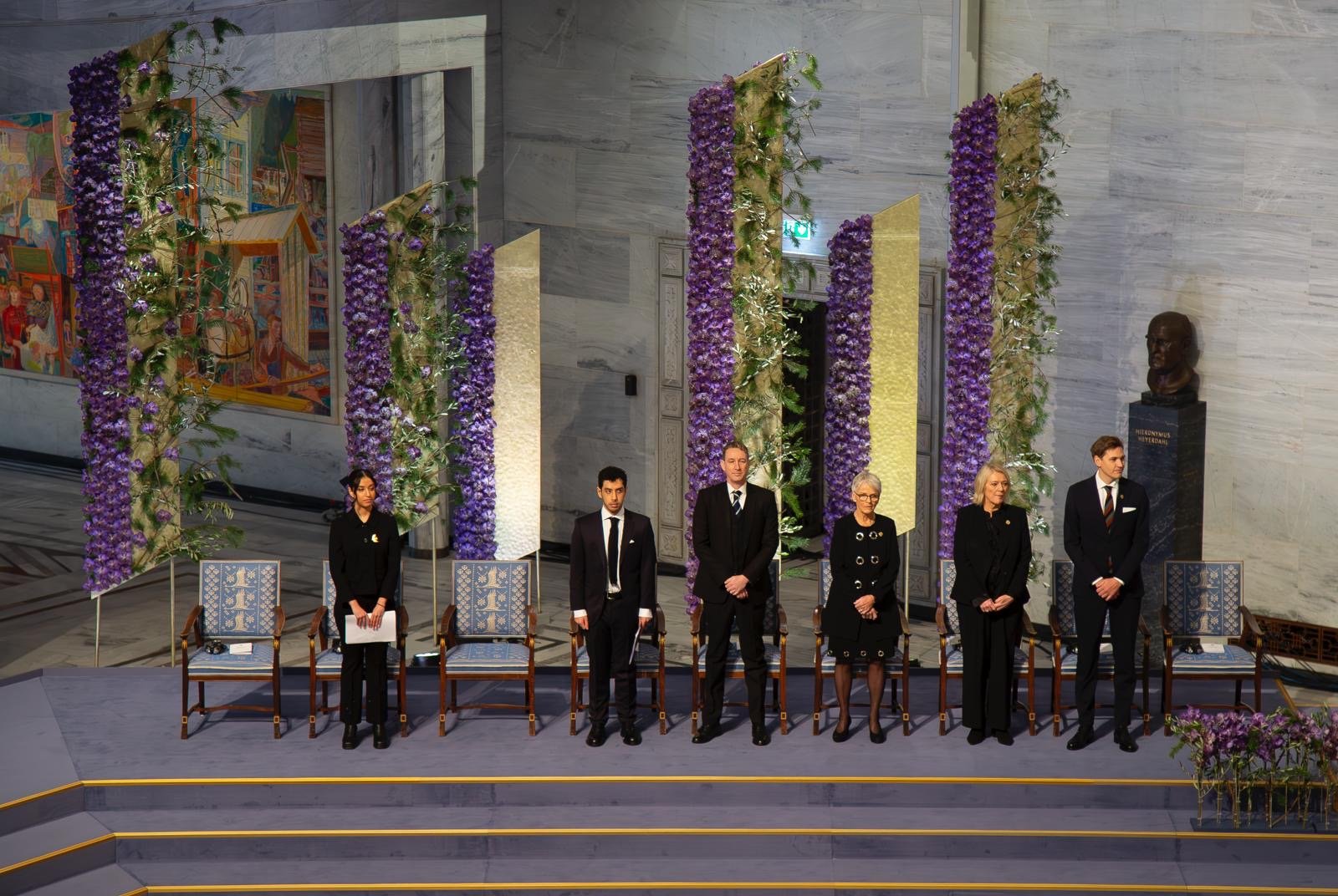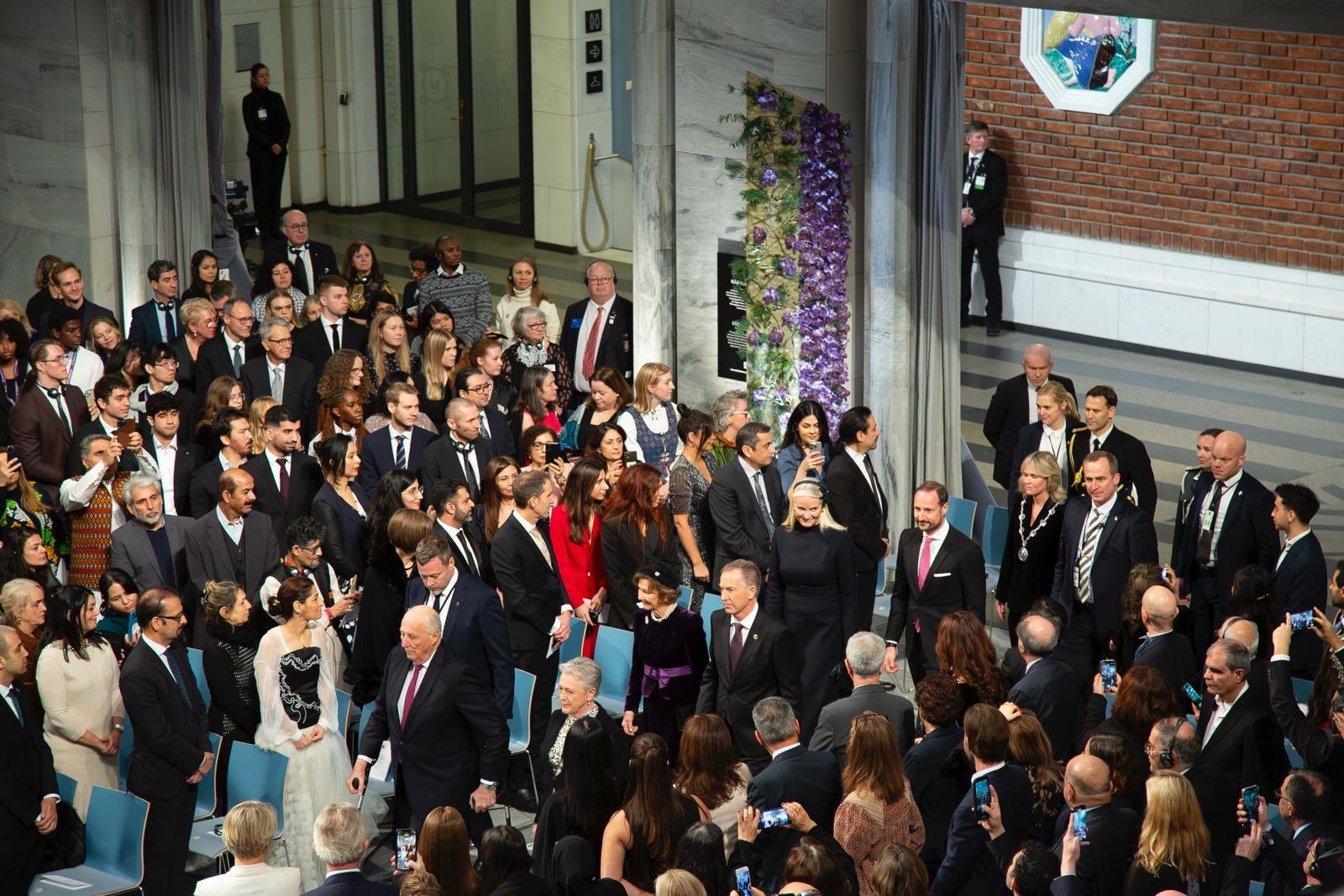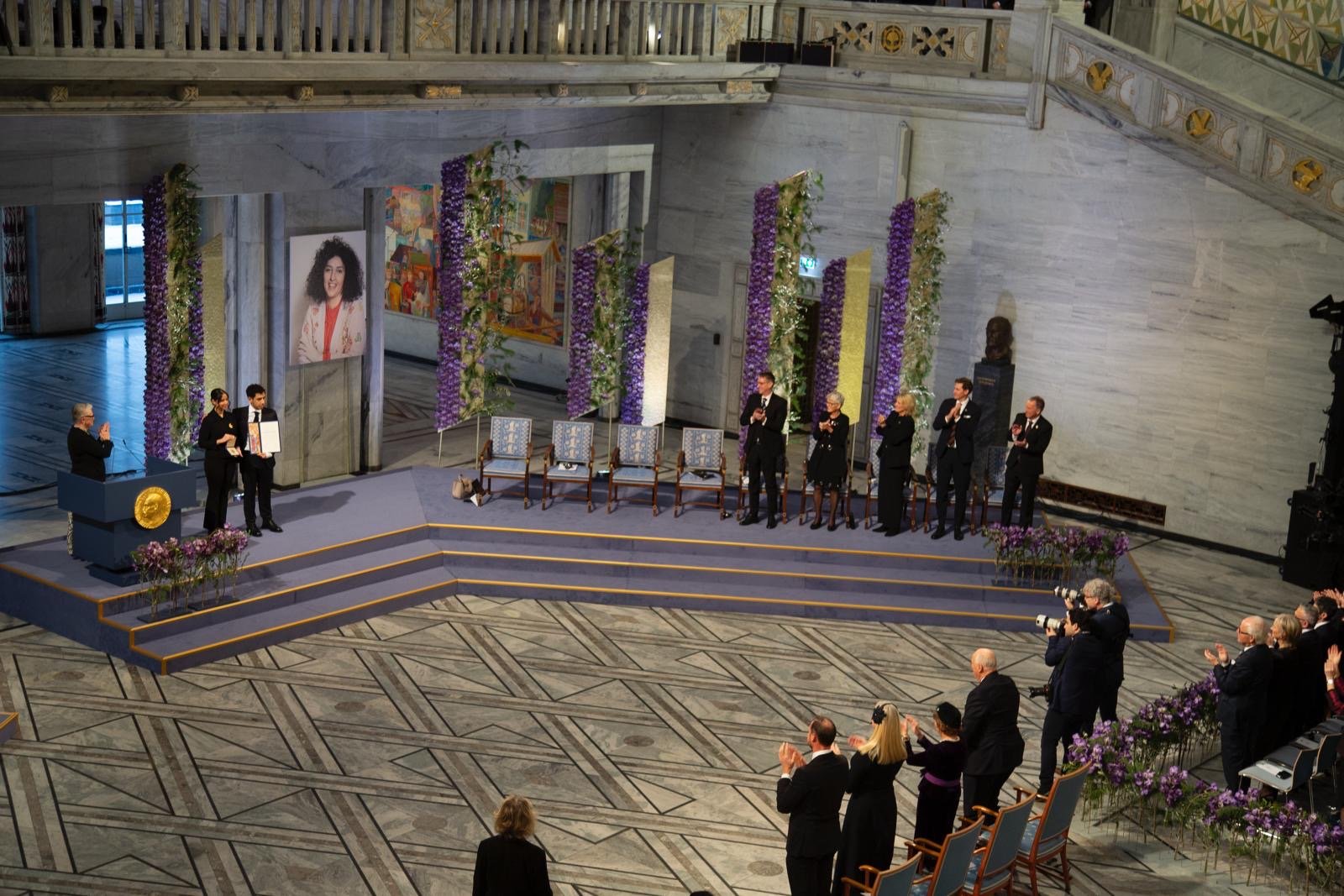The 2023 Nobel Peace Prize Awards Ceremony Honouring Laureate, Narges Mohammadi
Photo credit: Zofia Brys
Placed gently in the heart of Norway, Oslo City Hall stands tall and proud, radiating a certain glow that seemed to outdo all the towering buildings around it. As I walked through the halls of power, particularly the Parliament, I couldn't help but spectate the respectability of the atmosphere. Despite being a visitor, I felt a sense of solidarity around me, as if destiny had guided me to this very place.
The media room was a mecca of activity, filled with seasoned journalists and photographers, each exuding decades of experience. Here I was, a newcomer, in high socks, legs exposed to the Scandinavian chill, navigating through a sea of those I longed to be. It dawned on me that feeling out of place was more about one’s attitude than external factors. At that moment of being perceived, gratitude and enthusiasm for the opportunity to be present in such esteemed company became the vindication of my experience.
A side note, as walking to the hive of the celebration security personnel were, quite frankly, extensive. The meticulous checks and individual segregation were a testament to the disposition of power that seemed to infuse the surroundings. In a space where power imbalances were the fundamentals, the atmosphere spoke volumes about the underlying dynamics that lay within the walls.
Photo credit: Zofia Brys
Inside the main hall, the grandeur continued with the breathtaking display of blue and purple Vanda orchids. Originally found in Thailand and Myanmar, these orchids symbolise value and legend. They covered the venue in panels enclosed in gold leaf, creating a stunning backdrop for the ceremony. Approximately 600 branches of Vanda, totaling around 6,000 flowers, added a touch of gentle elegance to the event.
Photo credit: Zofia Brys
The ceremony unfolded with precision, as four guards trumpeted from the balcony, setting the tone for a timely and well-coordinated event. Along with the laureate's children, the committee members took their places, creating a diverse tableau of characters from different corners of the world, centre stage.
The entrance of the King and Queen of Norway silenced the room, and the King's presence commanded a sense of respect that transcended anything else I had seen. Whether it was the energy or the fact that his presence brought forth an individual whom you realise you have no choice but to respect, yet you’re not really sure why, but in celebrations like that you don’t tend to question it. You probably shouldn’t. The first musical element, featuring a cello and grand piano performance, was composed by Amalie Stalheim and Christian Ihle-Hadland.
King Harald V, in a capricious manner, absorbed the intricacies of the program on the elegantly crafted card stock, while the opening speech by Berit Reiss-Andersen began on the Universal Declaration of Human Rights. The decision to honour the laureate, Narges Mohammadi, as given by the Chair of The Norwegian Nobel Committee, was for ‘her long and courageous battle against the oppression of women in Iran and her struggle for freedom and liberty to all’
The emotional reverie continued with a second music performance, where Mahsa Vahdat and Tord Gustavsen created a soft, croaky, violently silencing atmosphere. The ceremony then reached its pinnacle and the Nobel Peace Prize was presented to Narges Mohammadi, with her children placing the award in a seat symbolically reserved for her.
Photo credit: Zofia Brys
The acceptance speech, delivered by Mohammadi's children, Kiana and Ali Rahmani, added a deeply personal touch to the proceedings. Due to their mother still being held in Evin Prison in Iran, the heartfelt words exceeded language barriers and truly emphasised the greater fight for women's rights everywhere. A poignant moment that personally touched me was when Kiana momentarily lost her way, only to be supported by her father, offering silent reassurance from the front row, amongst other friends and family already flooded with tears. Kiana had spoken in French, and thus everyone received headphones and a translator during her lecture. Amongst the 200-odd people seated below, her loved ones were the only ones who were not wearing the headphones. I chose to do the same. I dropped out of GCSE French and despite not knowing a word, I somehow felt like I understood more than anyone else there.
Photo credit: Zofia Brys
The ceremony concluded with a final musical performance, and as Ali and Kiana stood with the award, the room (and cameras) acknowledged the significance of the moment. Ali's peace sign during the applause served as a poignant punctuation mark amongst the deafening sounds of the shutters. It was a mesmerising moment.
In reflecting on the day's events, the spectrum of emotions experienced by Mohammadi's family members seemed to highlight the personal toll of their advocacy. The fight for justice isn’t just confined to Narges Mohammadi; it extends to women all over the world.
_
Nicola Sebastian is a writer, thinker, and sometimes a dreamer. Currently finishing up her studies, her words, writing, and thoughts can be found in the small nooks of the big wide web.





